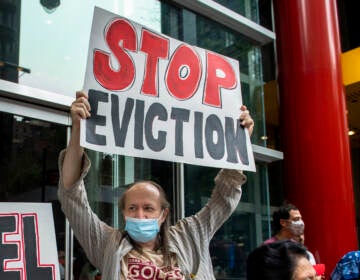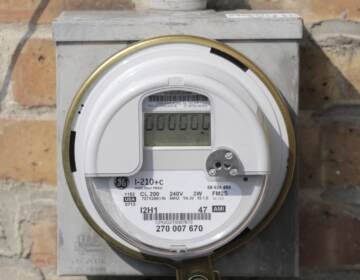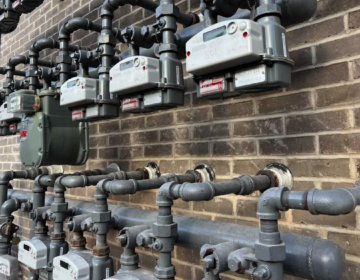N.J.’s moratorium on utility shutoffs has been extended. Here’s what you need to know
Older residents, as well as low- and moderate-income households have until mid-March to catch up on water, sewer, and municipal electric bills.

(J. Scott Applewhite/AP Photo, file)
New Jersey Gov. Phil Murphy recently signed off on a bill that extends the grace period for some families to work out a plan to catch up some of their utility bills.
The bill unanimously passed the Legislature on Monday. It allows low- and moderate-income households until Mar. 15, 2022 to work out how to pay the back balances of their water, sewer, and municipal electricity bills.
Murphy issued an executive order in June that would formally end a shutoff moratorium on utilities July 1. The moratorium was instituted in the early days of the pandemic when he started to issue stay-at-home orders.
While announcing the formal end of the moratorium, the governor allowed for a grace period for residents with arrearages to work a payment plan with their providers.
The legislation also extends the payment plan provisions of the governor’s order, requiring all utilities to offer a 12-month, no down payment, interest-free plan to customers before services are disconnected or liens imposed for non-payment of arrearages that had accrued since the beginning of the public health emergency.
“Through our extension of the utility shutoff grace period, we are giving customers an additional opportunity to work with their utility provider to enroll in an equitable payment option that ensures their critical, and in some cases life-preserving, services remain in operation,” Murphy said in a press release.
This grace period also coincides with the annual winter moratorium on utility shutoffs for certain residents, including residents 65 and older and low-income families.
The extension of the grace period is “great” news to Cheryl Stowell, president and chief executive officer of New Jersey SHARES, an organization that provides assistance to people in need.
“This new law will provide protections for folks with water, sewer, and municipal electric, which is much needed and not in place currently,” she said, but cautions that while the “much needed and greatly appreciated” moratoriums “are just kicking the can down the road in terms of the bills that people are building.”
“They are someday going to have to pay what they owe,” she added.
Some residents will not be covered by the Legislature’s relief. With the combination of the Dec. 31 grace period ending for others and the sunset of an eviction moratorium, there is a rush to help as many people as possible by the end of the year — Stowell’s organization included.
“We have folks on staff that can talk to you [and] decide what you’re eligible for [or] refer you if we can’t help you directly,” she said. “There is assistance out there.”
Stowell recommends calling the group’s toll-free number at 866-657-4273. Stowell said they can communicate in many languages and are able to help regardless of a person’s immigration status.
WHYY is your source for fact-based, in-depth journalism and information. As a nonprofit organization, we rely on financial support from readers like you. Please give today.






